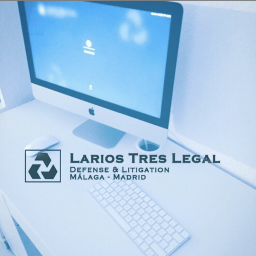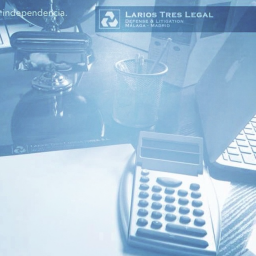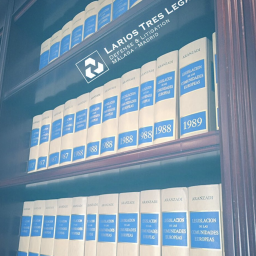
LARIOS TRES LEGAL
Industrial Espionage and Business Secrecy: The Case of Supreme Court Ruling 735/2024.
Supreme Court Ruling 735/2024, issued on July 12, deals with a case of industrial espionage revolving around Art. 278 of the Penal Code.
This article protects business secrets, i.e., confidential information of a company that, if disclosed, could adversely affect its competitive capacity.
The case in question:
The defendant, an employee in the IT department of company A, took advantage of his access to confidential information to copy financial data, invoices and customer lists of the company.
He saved all this information on a Pen Drive and offered it to a competitor company (Company B) in exchange for 1.500€.
To secure the transaction, he showed part of the data to Company B’s managers.
However, Company B, suspecting the illicit origin of the information, decided to inform Company A, which filed a complaint.
Shortly thereafter, the authorities arrested the defendant as he was about to hand over the information.
During his arrest, the police seized the Pen Drive with the stolen business secrets.
The judicial process
The case led the Criminal Court to convict the defendant of discovery and disclosure of business secrets, based on articles 278.1 and 278.2 of the Criminal Code.
The sentence included 3 years imprisonment and 12 months fine.
What does article 278 of the Criminal Code establish?
This article punishes the seizure of confidential information that constitutes a trade secret.
The crime is consummated when a person obtains, in an illegal manner, business data with the purpose of disclosing or selling it, as it happened in this case.
According to the criterion of our SC, it is not necessary that the competing company actually uses the information or that the trade secret is effectively disseminated.
It is enough that the defendant takes possession of the data with the intention of disclosing them for the crime to be consummated.
In this case, although the exchange of information was not completed, the Court considered that the action of offering the trade secrets in exchange for money and showing part of them to company B already constituted the crime.
What is the interpretation of the SC?
Well, our High Court declares that the legal asset protected by this article is the competitive capacity of the company.
The theft of confidential information can seriously damage the position of a company in the market, especially if that information gets into the hands of competitors.
That is why the Court established several key elements that define this crime:
- Seizure of data: The crime occurs when someone obtains without authorization the business secrets, either in physical or digital format, as the defendant did by copying the information on the Pen Drive.
- Purpose of discovering or disclosing the secret: The intent to obtain the secret must be to disclose or discover it. (In this case, the defendant attempted to sell the information to a competitor, fulfilling this requirement).
- Trade secret: A trade secret is information that has an economic value because of its confidentiality. The Court determined that the stolen financial data and customer lists met this definition, as their disclosure could have affected the competitiveness of company.
- Consummation of the crime: The Court establishes that the crime is consummated at the moment the defendant obtains the data with the intention of disclosing it, without it being necessary for the information to be used by the receiving company.
In this case, the crime was consummated when the defendant offered the data to company B.
What was the conclusion of the appeal?
The defendant appealed the sentence of the Criminal Court, and the Court concluded that the defendant’s conduct perfectly fit the assumptions established by article 278 of the Criminal Code.
The offer of the information in exchange for money and the attempted delivery constituted a clear act of industrial espionage, since the defendant had seized the business secrets with the purpose of selling them to a competitor.
The appeal filed by the defense was dismissed, and the conviction for the crime of discovery and disclosure of secrets was confirmed.
Conclusion
Finally, STS 735/2024 highlights the importance of protecting trade secrets in a competitive environment.
These ruling underlines that the crime of discovery and disclosure of secrets is not only consummated when the data is actually disclosed, but also when there is an intention to do so.
In a world where information is increasingly valuable, ensuring the protection of trade secrets is crucial to maintaining fair competition in the marketplace.
AutorSusana Domínguez Romero Attorney
Contact information+ 34 697 302 341
susana.dominguez@lariostreslegal.com
Services
Real Estate
Quantity claims
Civil Responsibility
Corporate
Accounting













